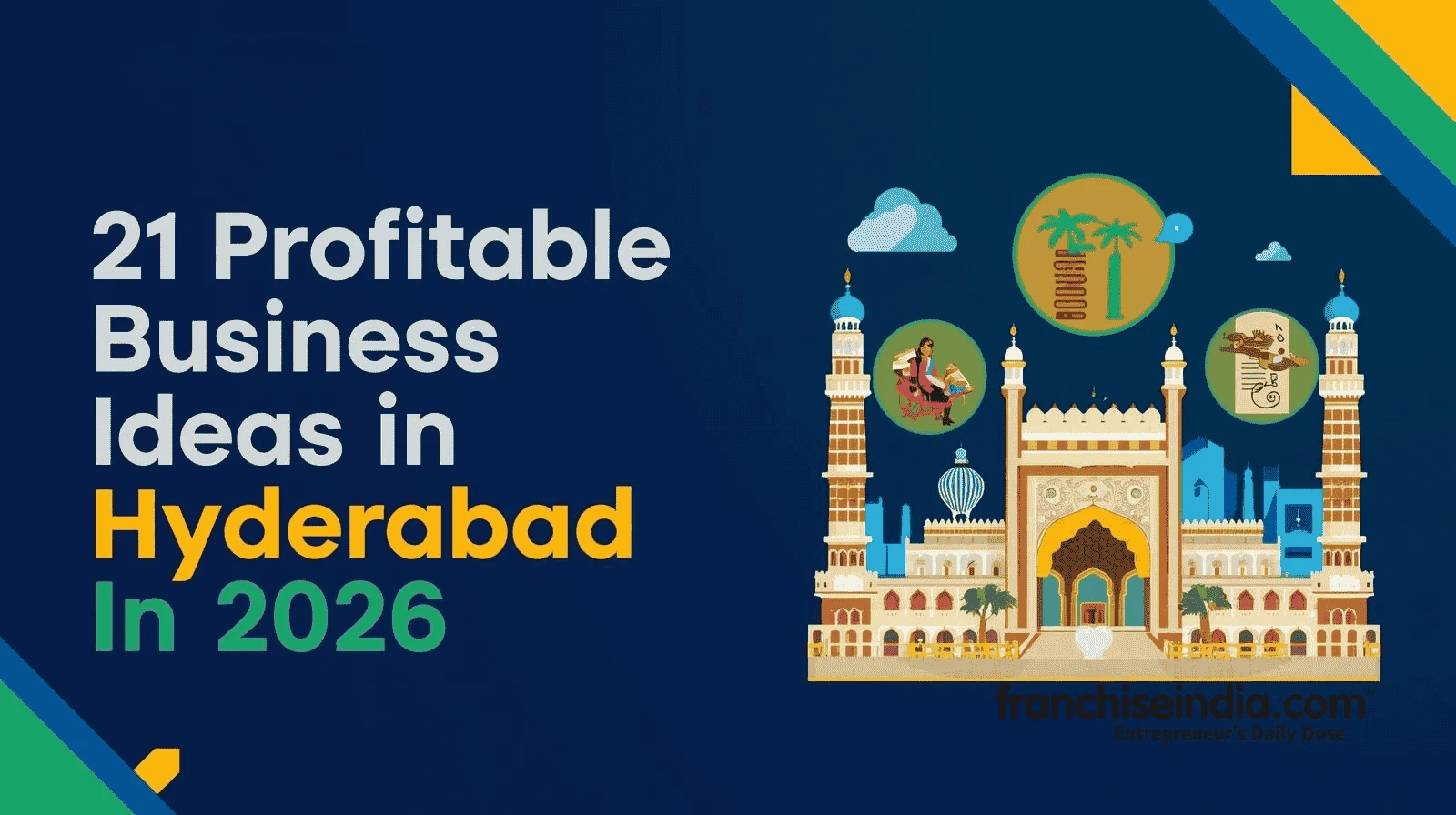
Hyderabad in 2026 is one of India’s fastest-moving startup and business hubs. It’s easily one of the most attractive places in India to do business. The city’s economy is driven by thriving sectors like IT, pharma, manufacturing, logistics, food, and real estate, with top-notch institutions—think IIT, ISB, and IIIT—and hubs like T-Hub backing it up. Government programs like TS-iPASS, Startup Telangana, and MSME/Udyam schemes have taken a lot of the pain out of setting up, getting funding, and securing licenses.
In this article, there’s a whole list of 21 profitable business options in Hyderabad. These cover everything from tech startups and renewable energy to healthcare, education, retail, food, tourism, and creative services. Each one comes with realistic investment needs (from ₹2 lakh up to ₹20 crore), clear revenue potential, and a path to government support. Read this to the end to know everything related.
With the city’s growing population, rising spending power, and a startup-friendly atmosphere, Hyderabad isn’t just a place to start a business—it’s where you can truly build, innovate, and succeed.
Read also: Top 15 Trending QSR Business Ideas You Can Start in 2026
1) SaaS / Enterprise software (B2B)—focused on healthcare, fintech, logistics
—focused on healthcare, fintech, logistics.png)
Hyderabad has really made a name for itself as one of India’s top spots for SaaS and enterprise software. There’s a deep bench of talent here—folks from IIT, IIIT, and ISB, plus a strong network of investors and enterprise clients always looking to try out new tech. The Indian SaaS market is on track to grow fast, about 18–20% each year till 2030, thanks to rising global demand for affordable, cloud-based solutions. If you’re thinking of launching a SaaS startup here, you’ll need anywhere from ₹10 lakh to ₹1.5 crore to get started. That covers building your product, running operations for 6–12 months, and hiring good developers or salespeople.
Once you’ve nailed product–market fit, you can aim for an ARR of ₹50 lakh to ₹5 crore within two or three years, and gross margins are often solid—somewhere between 70% and 90%. There’s plenty of support too: Startup Telangana grants, incubation at T-Hub, credit support through Udyam (MSME), and incentives from Startup India like tax breaks and patent help.
2) AI / Deeptech product

The city’s Genome Valley is a powerhouse for pharma and biotech, and its manufacturing scene is thriving. This makes it a great launchpad for AI and DeepTech startups. You get access to real-world data, industry partners, and a chance to run pilots—pretty much everything you need to build and test cutting-edge tech. India’s AI and analytics market is also on a tear, growing at a rate of 25–28% a year through 2030, as more businesses use AI in healthcare, legal, and manufacturing. To set up an AI-focused venture in Hyderabad, you’re looking at an investment of ₹25 lakh to ₹3 crore. That’ll go towards hiring engineers, buying data, and getting the right computational tools.
Early on, startups usually earn ₹5–50 lakh a year from custom contracts. Over time, as products mature, revenue shifts to high-margin ARR. You can speed things up by joining T-Hub or T-Works programs, tapping into Startup Telangana’s seed grants, and using national R&D incentives to cut financial risk when you’re starting out.
3) Cloud kitchens & multi-brand delivery kitchens
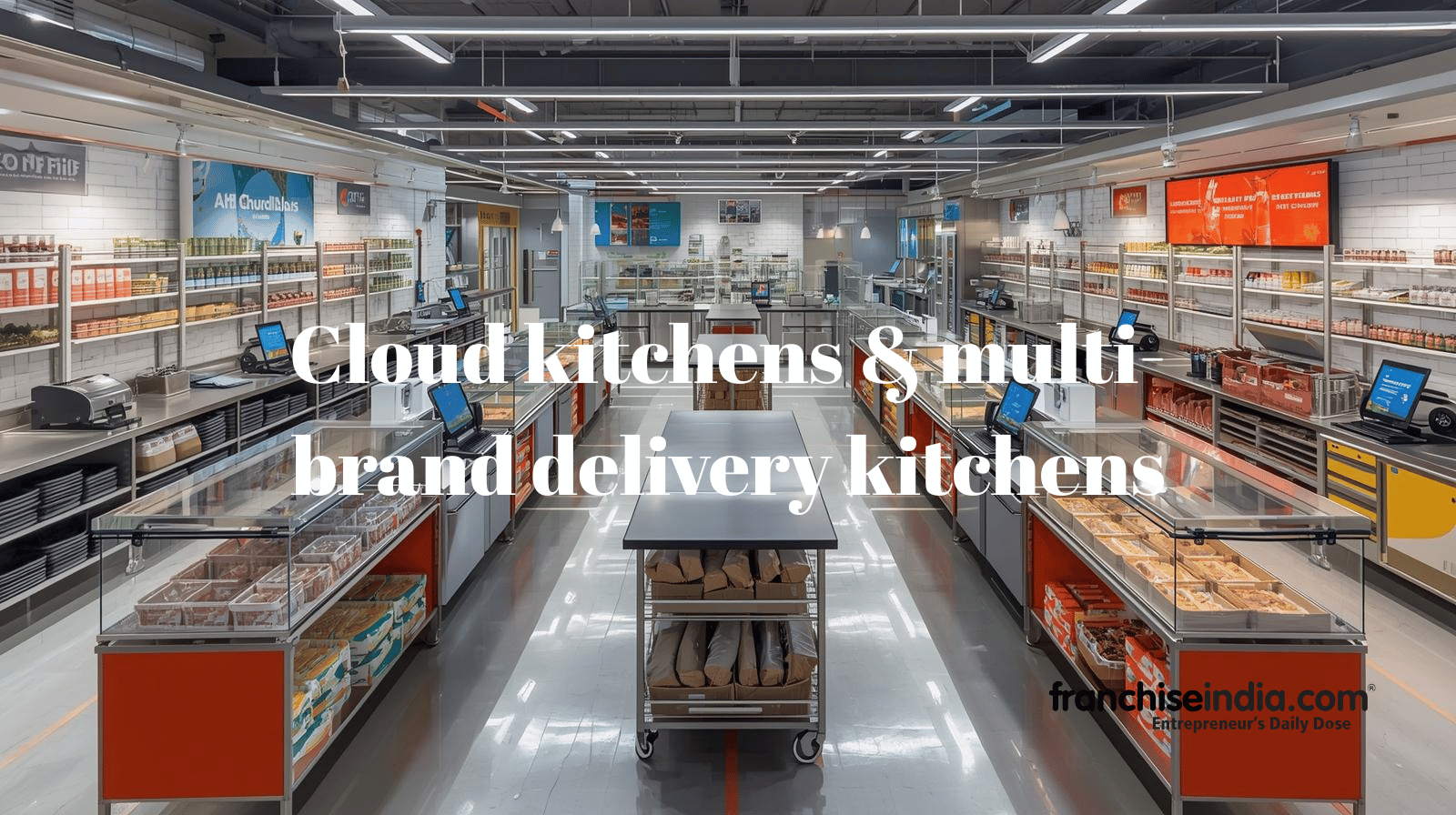
If food’s more your thing, Hyderabad’s booming urban crowd, love for online food delivery, and cheaper real estate make it the perfect place for cloud kitchens and ghost kitchen models. These delivery-only kitchens cut out the cost of dine-in service and ride the wave of India’s growing online food market, which is set to grow at 15–17% a year through 2030. You can start small with a shared kitchen for about ₹6 lakh or go big with a full-blown setup for up to ₹35 lakh.
Depending on where you set up and your brand lineup, each kitchen can pull in ₹3–18 lakh a month, with EBITDA margins running between 12% and 25% if you keep things tight. Most setups pay for themselves in 12–30 months. Founders can run single or multiple brands, partner with food delivery apps, and use Udyam/MSME registration to get easier bank loans, plus grab grants from Startup Telangana or TS-Food Processing.
4) Specialty healthcare clinics

Healthcare’s another big draw. Hyderabad’s mix of people, growing middle class, and rising health spending are fueling demand for specialized clinics—think cardiology, diabetes, physio, and mental health. The Indian healthcare services market should grow at 16–18% per year through 2030, which means lots of room for high-quality, niche clinics. Getting started takes an investment between ₹20 lakh and ₹2 crore, enough for space, equipment, and licenses.
Depending on how big and specialized your clinic is, you might see annual revenues of ₹30 lakh to ₹5 crore, with EBITDA margins from 18% up to 35%, and payback in 18–36 months. It pays to choose a good location, hire top-notch clinicians, and tie up with insurers. There’s support through Udyam/MSME registration, state health approvals, and central initiatives under the Telangana Health Mission.
5) Diagnostics/Pathology & Imaging Centre
.png)
Diagnostics and pathology are also on the rise in Hyderabad, thanks to growing health awareness and a real push for preventive care. The diagnostics market in India is set to grow at 11–13% a year through 2030, as more people need testing for lifestyle diseases and have better access to labs. You can open a diagnostic or imaging center with anywhere from ₹15 lakh to ₹5 crore, depending on whether you’re doing basic pathology or setting up a full imaging facility.
These centers can bring in ₹40 lakh to ₹6 crore a year, with gross margins at 40–60% and EBITDA between 18–30%. Payback usually takes 18–48 months. If you want to build trust fast, getting NABL accreditation is a must. Entrepreneurs can also benefit from Udyam registration, Telangana state health incentives, and central infrastructure development schemes for diagnostics.
Read also: Top 15 Healthcare and Wellness Businesses to Consider in India
6) Elderly care & home healthcare services

India’s population is getting older, and families are getting smaller. That’s made home healthcare and elderly care a booming business in cities like Hyderabad. People want help at home—nursing, physio, advice about assisted living—and the market just keeps growing. By 2030, experts expect home healthcare in India to grow at about 19–21% every year. It doesn’t take a fortune to get started. You can set up shop with anywhere from ₹5 lakh to ₹50 lakh, which covers the basics: training caregivers, buying a vehicle or two, hiring staff, and renting a small clinic or office.
Depending on how big you go, you’re looking at monthly revenues of ₹2–20 lakh, gross margins between 25–40%, and you can get your investment back in about one to two and a half years. To build trust, founders should team up with hospitals and go after quality certifications. There’s also a bunch of government help—Udyam registration, Telangana’s skill programs, and Startup Telangana’s grant schemes.
7) EV charging stations & EV service workshops
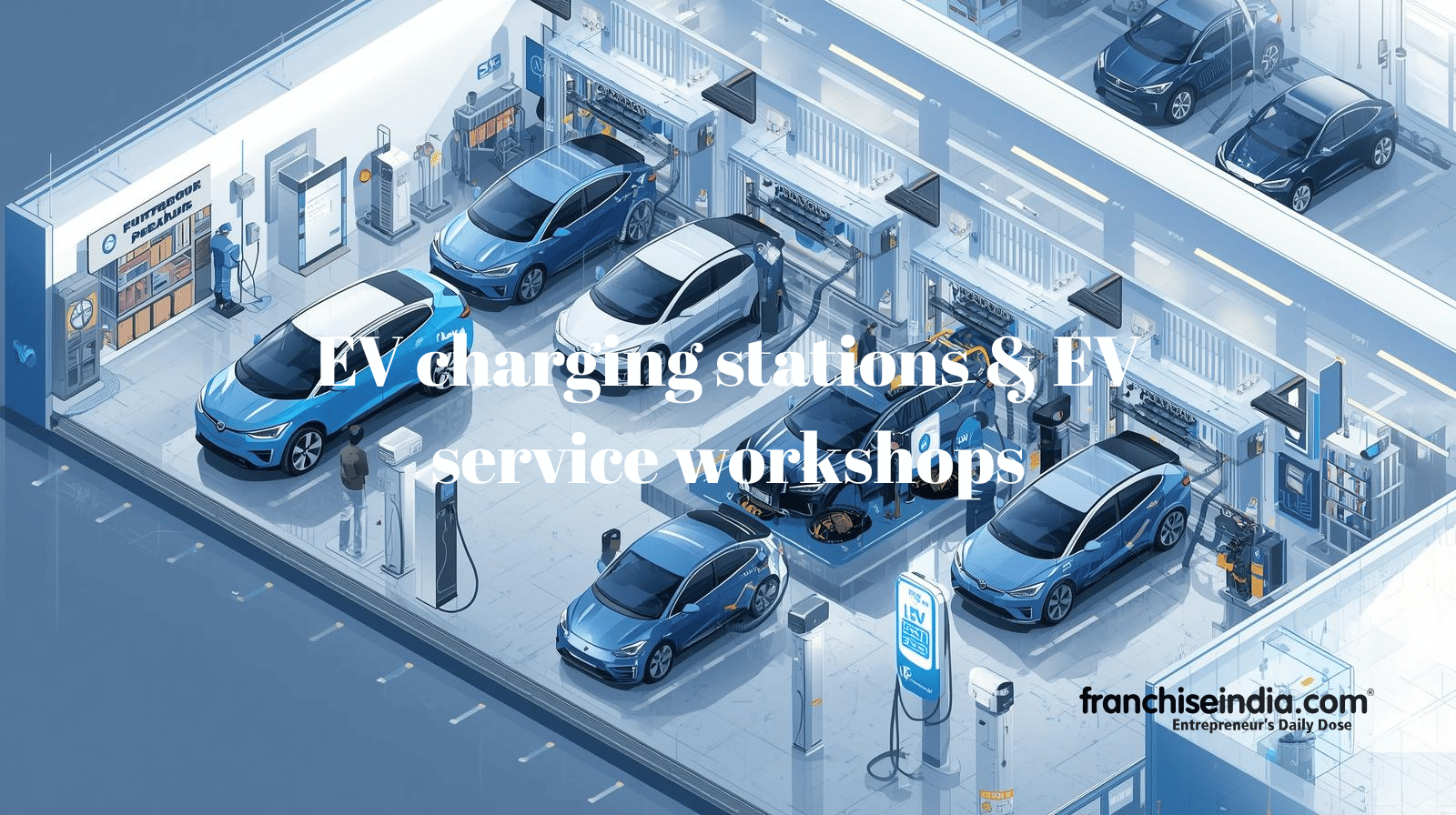
The EV charging station business is another hot ticket in Hyderabad. Electric vehicles are everywhere, and the government’s all in on making it happen. According to NextMSC, the Indian EV charging market should grow at 36–40% every year until 2030. All those new cars mean more charging stations, and setting one up takes an investment of ₹6 lakh to ₹40 lakh per location, depending on whether you’re installing slow chargers, fast chargers, or need to do extra construction work.
Each charger can bring in ₹20,000–₹2 lakh a month, but it depends on how busy your site is and your electricity bills. If you pick a good location—think malls, parking lots, or petrol stations—you can expect a payback period of two to four years. Plus, the government’s offering incentives for public fast chargers, quick approvals under TS-iPASS, and partnerships with OEMs or aggregator networks under the state’s EV policy.
8) Rooftop solar + energy services (O&M) for commercial buildings
 for commercial buildings.png)
Rooftop solar is another sector worth watching. Hyderabad is ripe for it, with strong state support for renewables and more companies chasing ESG goals. As solar panels get cheaper and net-metering rules stay favorable, demand just keeps picking up. By 2030, rooftop solar across India is expected to grow at 20–22% every year. You can start with ₹6 lakh for a small system or go big with ₹1.2 crore for a larger setup.
Returns come from saving on power bills and selling excess electricity back to the grid, and you can expect project IRRs of 10–18% and a payback in three to seven years. To get rolling, you’ll need to survey rooftops, get net-metering approval from DISCOM, and handle both installation and maintenance. Telangana’s solar incentives, TSREDCO programs, and central government subsidies all help lower the startup costs.
9) Agro-processing & cold chain for perishables
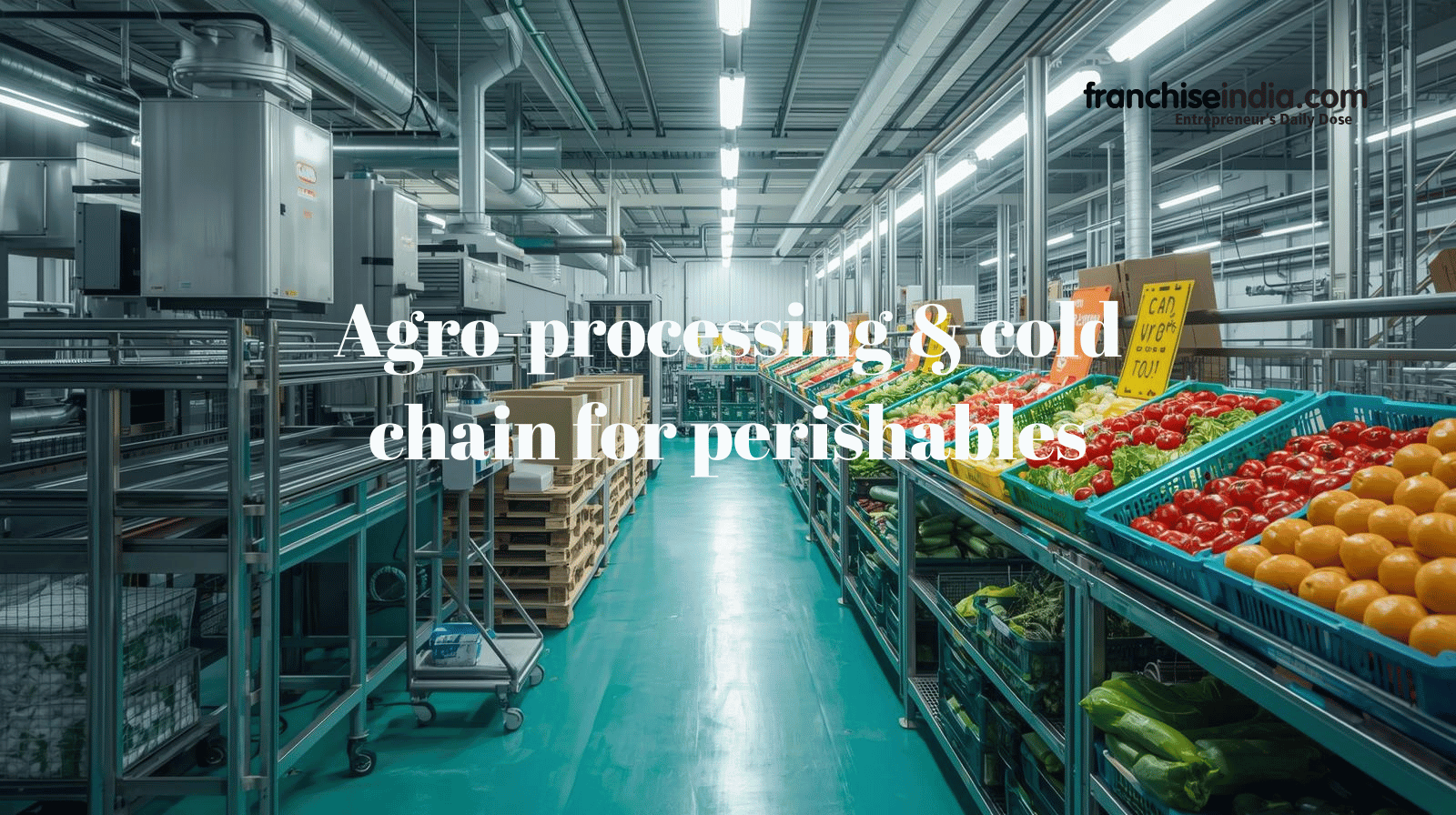
Cold storage and food processing is another big bet in Hyderabad. Telangana has a strong farming base, and the city’s appetite for perishable goods—juices, frozen veggies, and dairy—is only growing. The cold chain market in India should see 14–16% annual growth through 2030. Entrepreneurs who build out logistics and storage for farm-fresh produce can really cash in. Setting up a cold storage facility typically costs anywhere from ₹30 lakh to ₹5 crore, depending on how big you go and what kind of pre-cooling or packaging gear you need.
Once up and running, you can pull in annual revenues of ₹50 lakh–₹8 crore, with profit margins of 12–25%. Most businesses recover their money in two to five years. It pays to work closely with local crop clusters, get FSSAI approvals, and link up with retail chains. The government’s in your corner too—PM-Kisan schemes, NABARD loans, Udyam registration for easy credit, and state incentives all make it easier to get started.
10) Logistics & last-mile delivery
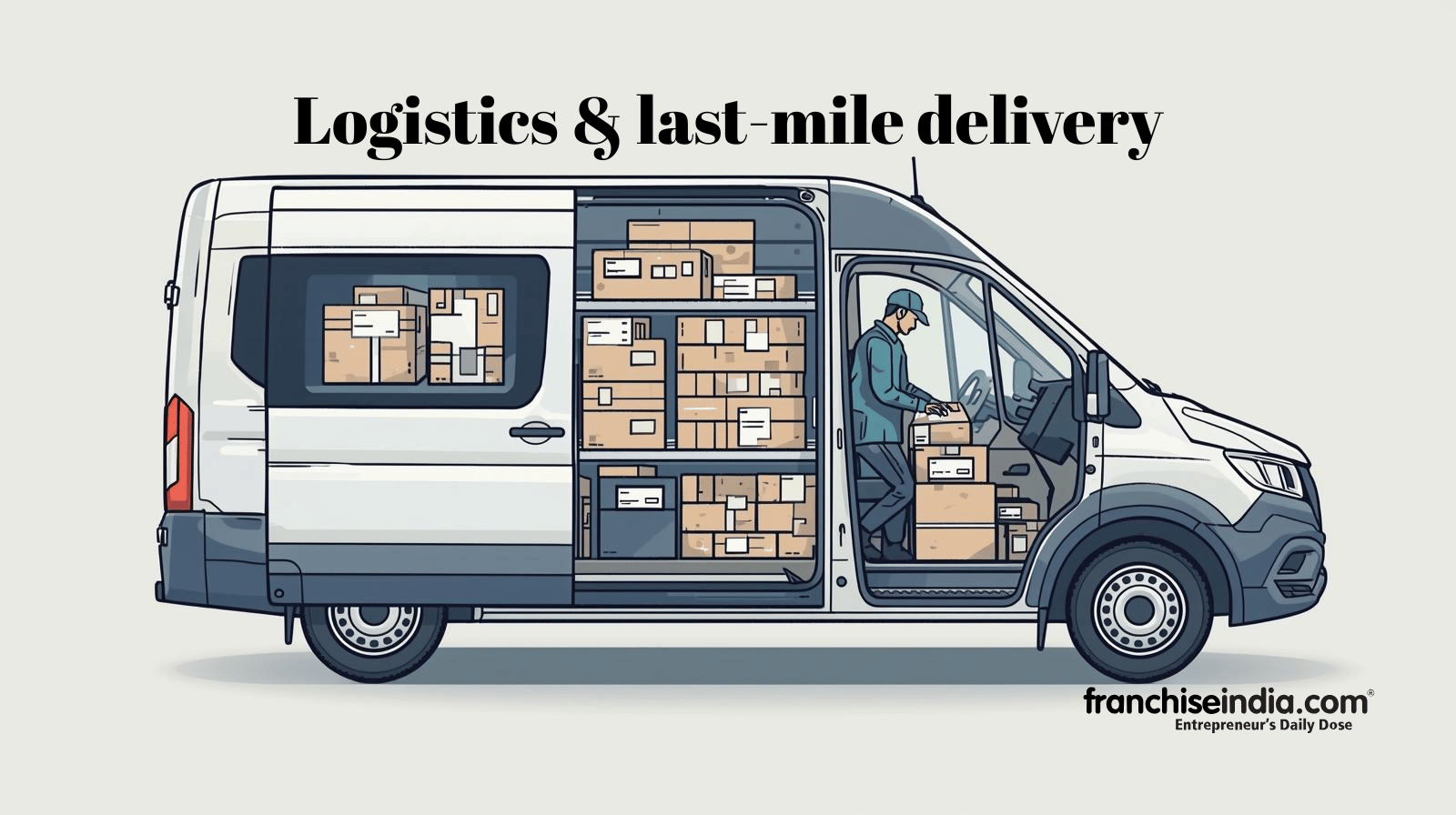
Last-mile logistics and micro-fulfillment are really taking off in Hyderabad, thanks to the city’s huge e-commerce market and its great connections to smaller towns in Telangana and Andhra Pradesh. The e-commerce logistics market in India is growing fast—about 18–20% a year through 2030. That’s a big opportunity for anyone who can offer fast delivery and smart storage solutions. Launching a micro-fulfillment center with a small fleet takes ₹10 lakh to ₹1.5 crore, depending on how much tech you use and how big your warehouse is.
Monthly revenues can hit ₹5–40 lakh, with net profit margins of 8–18%. Most entrepreneurs get their money back in about 18–36 months, especially if they partner up with big e-commerce brands. There’s plenty of room to specialize too—think pharma cold chains or D2C fashion logistics. Support includes Udyam/MSME financing benefits, Invest Telangana’s logistics incentives, and TSIIC warehouse park facilitation schemes.
Read also: Top 15 Sustainable Service-Based Business Ideas in 2026
11) Specialty manufacturing
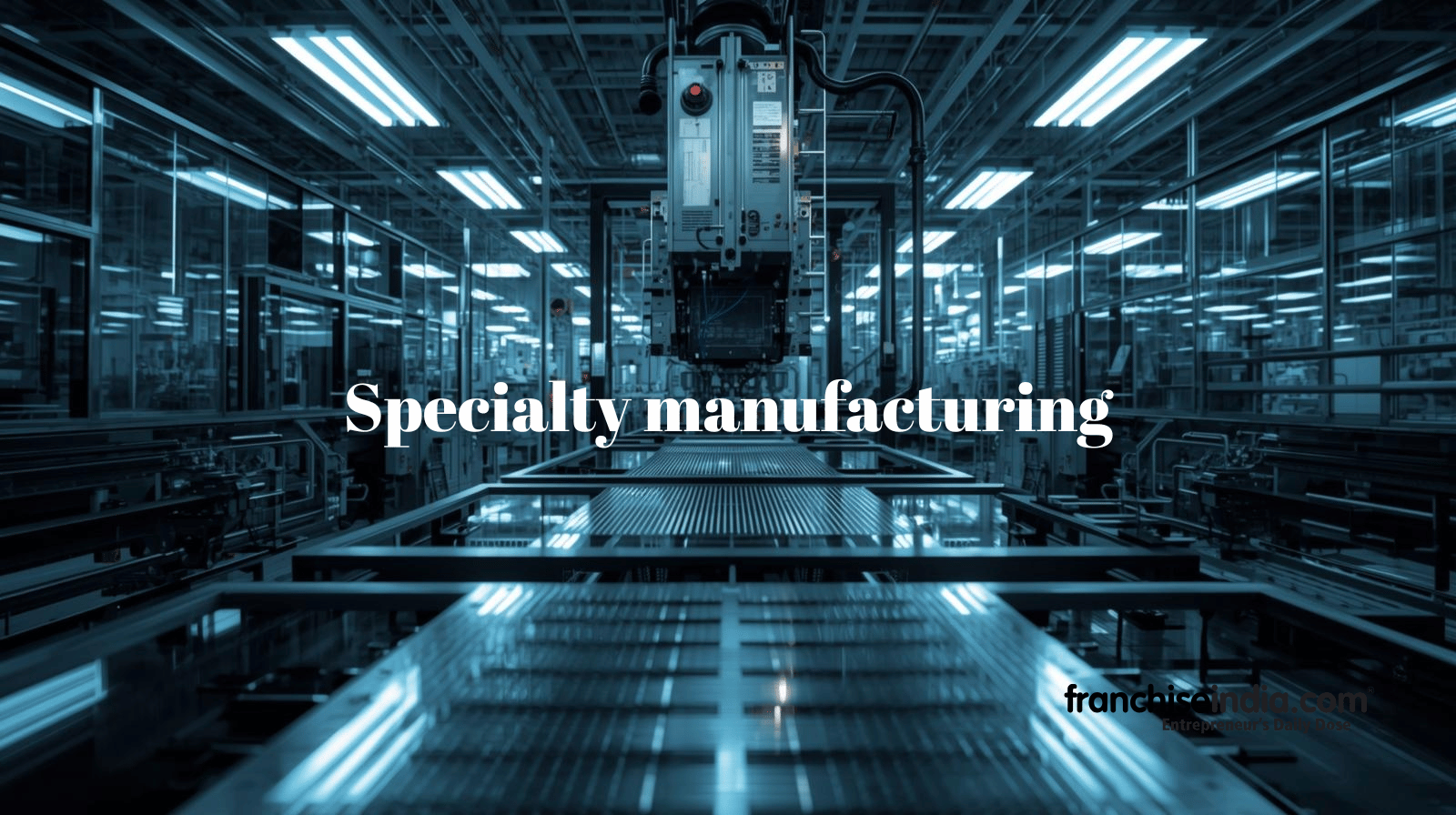
Hyderabad’s electronics, semiconductor, and precision manufacturing scene is booming right now. Telangana’s government keeps pushing out business-friendly policies and building up the industrial ecosystem, so it’s not surprising that Hyderabad has turned into a national hotspot for advanced manufacturing. The state even has its own clusters just for ESDM and semiconductors, plus drones. If you look at the numbers, the Indian electronics manufacturing market is on track to grow at around 17–20% a year through 2030, mostly because both local demand and exports keep climbing.
Investments can be as little as ₹50 lakh for a small precision unit or as high as ₹20 crore for a bigger factory. Revenues can hit anywhere from ₹1 crore to ₹30 crore a year, and you’re looking at profit margins between 10% and 25%. Payback usually lands somewhere between two and five years. For startups, places like T-Works make prototyping easier, and you can get TS-iPASS approvals pretty fast. Invest Telangana and TSIIC also offer good incentives—think land allotments, fiscal perks, and all the support built into the state’s industrial policy.
12) Pharmaceutical contract manufacturing/CDMO services

On the pharma side, Hyderabad is hard to beat. The city’s already called India’s pharma capital, and for good reason. Genome Valley is packed with global drug manufacturers, R&D labs, and a huge pool of skilled professionals. The Indian pharmaceutical manufacturing market is expected to grow at 10–12% a year up to 2030, thanks to strong export numbers, generics, and rising healthcare needs.
To get started, you might put in anywhere from ₹2 crore for a small contract lab up to ₹100 crore or more for a full-blown cGMP facility. CDMOs, once they’re up and running, usually pull in margins of 12–22%. Because pharma is capital-heavy and loaded with regulatory hurdles, payback can take three to seven years. Still, the government’s got your back with TS-iPASS fast-tracking, Invest Telangana incentives, and central subsidies for pharma clusters. No wonder Hyderabad is the go-to for life sciences manufacturing.
13) Boutique apparel / D2C fashion manufacturing (hyderabad-inspired design)
.png)
The city’s also catching attention in apparel and fashion manufacturing. Hyderabad offers a skilled tailoring workforce, low production costs, and a D2C fashion market that’s taking off across India. Digital shopping is booming, and more people want unique, homegrown brands. The apparel industry should grow at 9–11% a year through 2030, driven by online sales and exports.
You can get started with as little as ₹5 lakh, or go up to ₹80 lakh if you want to set up a small factory. That covers everything from design and studio setup to equipment and inventory. First-year sales might range from ₹10 lakh up to ₹3 crore. Gross margins are strong—40–60%—and you could see payback in just one to three years, depending on how you scale and brand yourself. The real keys are creative design, producing in small batches, and smart marketing through social media and influencers. There’s extra help too, like Udyam registration, PMEGP funding, and local training for artisans.
14) Co-working & flexible office spaces

Co-working and flexible office spaces are having a moment in Hyderabad, too. Hybrid work is the new normal, and spots like HITEC City and Gachibowli are packed with startups and tech teams. Demand for affordable, community-driven workspaces just keeps going up. Across India, the flexible workspace market should grow at 15–18% a year through 2030, as more startups launch and big companies shrink their old-school offices.
You can set up shop with anywhere from ₹20 lakh to ₹5 crore, depending on how fancy you want to go. Each seat can bring in ₹2,000 to ₹10,000 a month, and if you fill the place up, you might see NOI margins of 20–40%, with payback in two to four years. The best locations are well-connected, and offering extras like mentorship, events, and networking makes people want to stay. Partnering with T-Hub or Startup Telangana helps fill up your space and boosts your profile.
15) EdTech / Upskilling centres

The edtech and professional training are taking off in Hyderabad. The city’s strong IT, pharma, and education base means there’s always someone looking to upskill or get ready for global careers. Demand for industry-focused and hybrid learning platforms is only going up. The Indian edtech market is set to grow at 20–25% a year through 2030, thanks to digital adoption and government-backed skilling programs. If you’re thinking of starting something, you could get going with ₹5 lakh to ₹60 lakh, covering things like content, trainers, and a studio.
Depending on your reach, annual revenues can land anywhere from ₹10 lakh to ₹4 crore, with juicy gross margins—60–90%—and payback in about one to two and a half years. Placement partnerships and a solid mix of online and offline learning help build credibility and let you scale faster. Government support includes Telangana skill development programs, Startup Telangana’s edtech pilot funding, and national vocational training schemes.
Read also: 15 Most Profitable Food Business Ideas in India
16) Travel & experiential tourism

Hyderabad’s tourism and experiential travel scene is bursting with possibility. The city’s got it all—gorgeous old monuments, a buzzing film culture, and food that people travel across the globe to try. Places like Charminar, Golconda Fort, and Ramoji Film City pull in crowds, but it’s the niche experiences—heritage walks, food tours, boutique travel—that really set Hyderabad apart. The Indian tourism industry’s on a roll, growing at 9–11% a year until 2030, thanks to more people traveling within the country and a real craving for unique experiences. You don’t need a massive bankroll to get started; some folks launch with just ₹2 lakh if they’re running small, curated tours, while bigger setups with vehicles and lodging can run up to ₹50 lakh.
Profit margins stay healthy—30–60% per tour—so it’s possible to hit annual revenues anywhere from ₹3 lakh to a whopping ₹2 crore. Most people see their investment pay off within two years. The state’s not leaving you hanging, either. Telangana Tourism offers grants, there are incentives for homestays, and the central government has schemes to back experiential tourism.
17) Events, MICE & corporate experience management
.png)
Event management and corporate experiences in Hyderabad are on fire right now. The city’s growing startup and tech scene means there’s always another product launch, conference, or networking event around the corner. Companies want pros who can pull off creative, flawless events. The Indian event management industry is growing even faster than tourism—13–15% a year through 2030—thanks to bigger corporate marketing budgets and the rise of hybrid online-offline events.
Starting out can take just ₹5 lakh for small gigs, but bigger players with more gear and a team can invest up to ₹2 crore. Margins are solid, usually 15–30% per project, and firms with steady corporate clients get their money back in one to three years. The real key? Build a standout event style, lock in reliable vendors, and make smart use of digital marketing. On the support side, Udyam registration opens up MSME perks, and TS-iPASS helps with approvals for venues and event setups.
18) Waste management & circular economy services
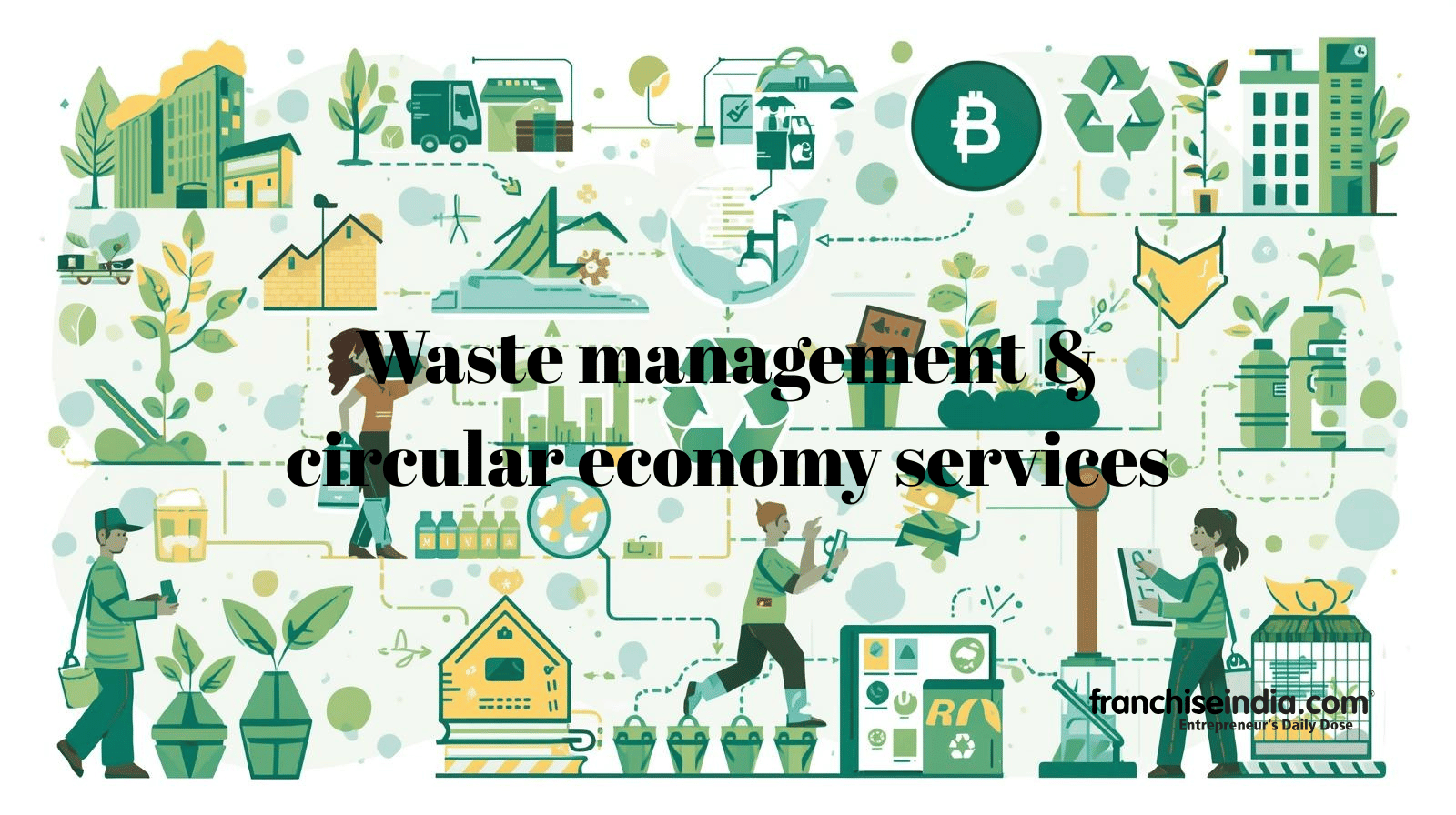
Waste management and recycling are turning into big business in Hyderabad, mostly because the city keeps growing—and so does the trash. There’s real money in circular economy ideas like composting, recycling, and sustainable packaging. The Indian waste management market is set to grow 7–9% annually until 2030, with a push from both the government and companies going green.
Setting up shop can cost anywhere from ₹10 lakh for small composting units to ₹10 crore for big waste-to-energy plants. Gross margins hover between 20–40%, and most businesses recoup their investment in two to four years, depending on how much waste they can secure and how efficiently they run. It’s crucial to lock in feedstock deals with municipalities or large housing complexes and sort out all the environmental clearances. The government’s backing this sector too—there are central and state schemes, subsidies for composting and recycling, and Udyam registration for loan access.
19) Boutique specialty cafés/QSRs
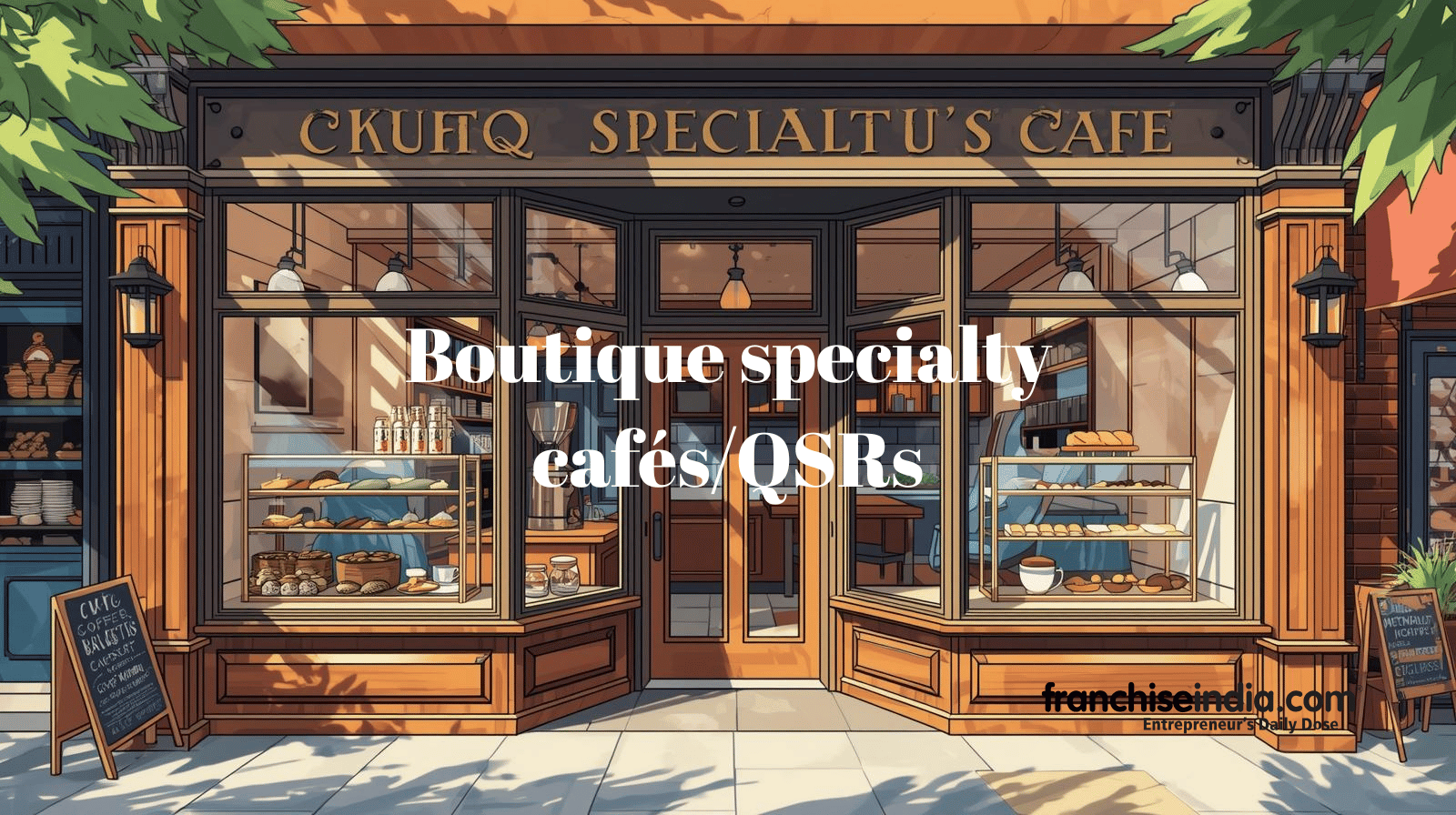
Cafés and specialty bakeries are everywhere in Hyderabad these days. The city’s got a lively youth culture, people love hanging out in cafés, and there’s a growing taste for premium, artisanal treats. Specialty coffee shops, dessert cafés, and boutique bakeries are popping up across IT corridors and busy neighborhoods. The market is expected to grow at 10–12% a year until 2030, boosted by urban lifestyles and the ease of online food ordering.
You can start small with a kiosk for ₹8 lakh or go all out with a full café at ₹80 lakh. Monthly revenues range from ₹2 lakh to ₹18 lakh, with profit margins between 12–25%. Most cafés break even within one to two and a half years. What really matters is standing out—brand, quality, customer engagement. The government helps out here too, with MSME loans, training programs for hospitality skills, and business support schemes through Udyam registration.
20) Fintech / payments & merchant services for SMBs

Fintech and digital financial services are booming in Hyderabad, riding on the back of the city’s massive small business scene. Everyone needs better ways to handle credit, payments, and payroll, and India’s push for digital finance is making this one of the fastest-growing industries—think 25–30% annual growth until 2030. Getting started takes a bit more capital, from ₹25 lakh up to ₹5 crore, mainly for building technology, getting licenses, and ticking all the regulatory boxes.
Business models vary—some charge fees, others take commissions, and some earn interest—so you’ve got options. Payback typically takes two to four years, depending on how quickly you attract customers and line up partnerships. You can go after NBFC or payment aggregator licenses, or team up with banks to launch your own services. Government support includes Startup India benefits, RBI and FinTech regulatory sandboxes, and Udyam-linked schemes promoting MSME-focused financial innovations in Telangana.
Read also: Top 7 Most Successful Businesses to start in 2025-26
21) Creative & digital agencies specializing in regional languages and local commerce
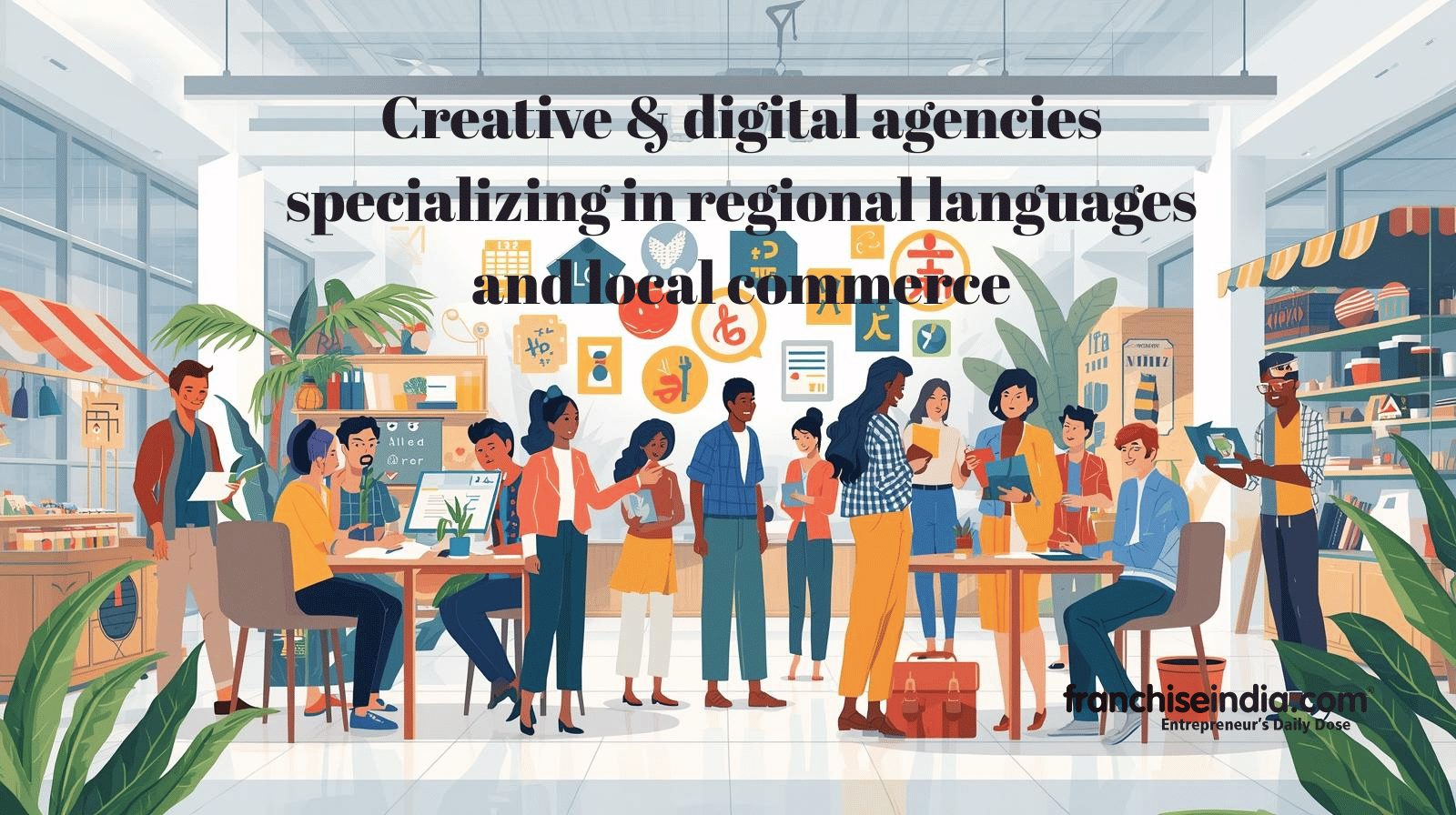
Hyderabad’s digital marketing and regional content scene is on fire right now. Brands want to speak directly to local audiences, especially in Telugu, and agencies here are stepping up in a big way. The city’s full of creative talent and fresh startups, so it’s the perfect place for agencies that do social media, branding, influencer partnerships, or vernacular ads. Across India, digital marketing is on a rapid climb—think 18–20% growth every year until 2030. Small businesses and D2C brands are fueling this rush online. If you’re an entrepreneur, you can jump in with anywhere from ₹3 lakh to ₹50 lakh, depending on how big you want to start and the tools you use. Yearly earnings can range from ₹10 lakh to ₹5 crore, with solid profit margins—between 20% and 45%—and you usually get your money back in six months to two years. Focusing on a niche, like real estate or hospitality, helps you stand out and earn trust. There’s plenty of support, too: Udyam registration opens up MSME loans, and Startup Telangana offers grants to help creative agencies grow.
Why Hyderabad in 2026?
Fast-forward to 2026, and Hyderabad stands out as one of India’s most exciting business hotspots. There’s a powerful mix of IT, biotech, and manufacturing, along with a booming startup and consumer base. The city’s got all the right ingredients: up-to-date infrastructure, skilled people, and a government that actually makes things easier for businesses. Initiatives like TS-iPASS, Startup Telangana, and T-Hub have made it much simpler to launch across all kinds of sectors—tech, healthcare, food, green energy, logistics, and creative fields.
You don’t need a huge budget to get started, either. Whether you have ₹2 lakh for something small or ₹20 crore for a big industrial project, there’s room to grow, and the profit potential is real. The government’s backing is strong, with MSME, MNRE, NABARD, and Telangana’s own policies helping with loans, fast approvals, and innovation grants. So whether you’re dreaming of a tech company, an EV charging station, a wellness clinic, or a cozy café, Hyderabad’s energy and business-friendly vibe make it the place to build something profitable and future-ready.
You might also like: 21 Small Business Ideas with High ROI in Kolkata

